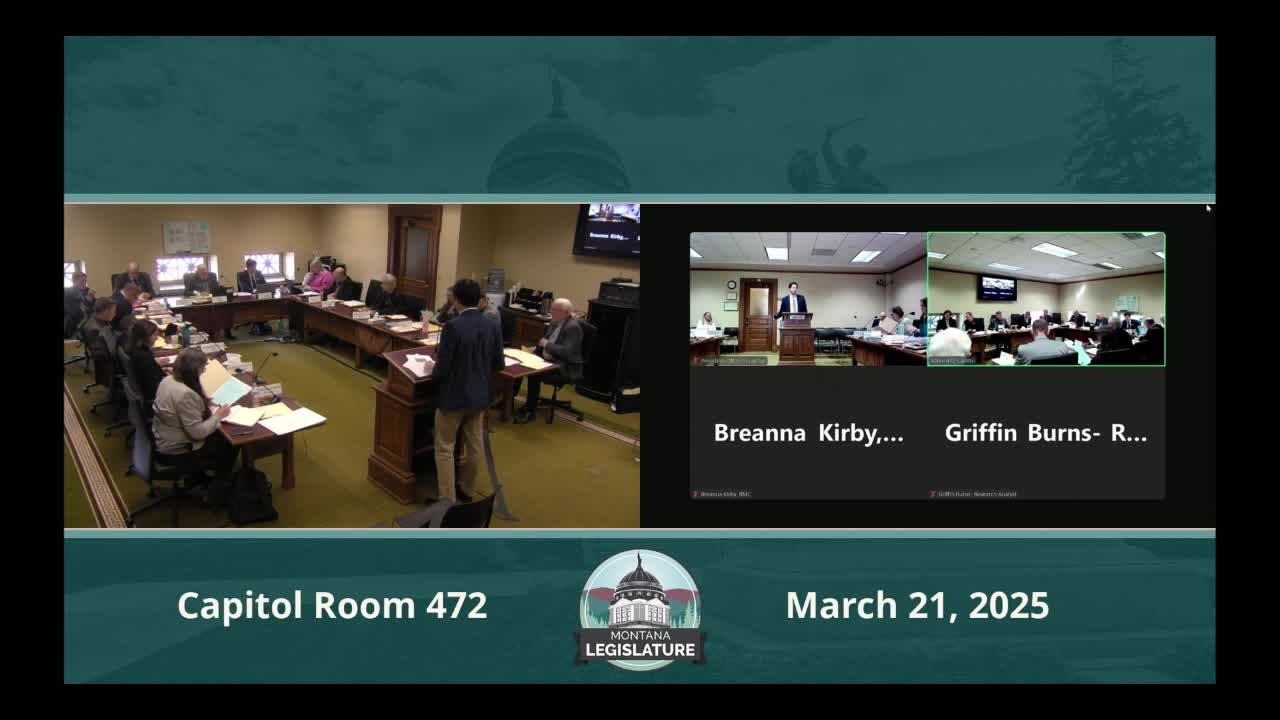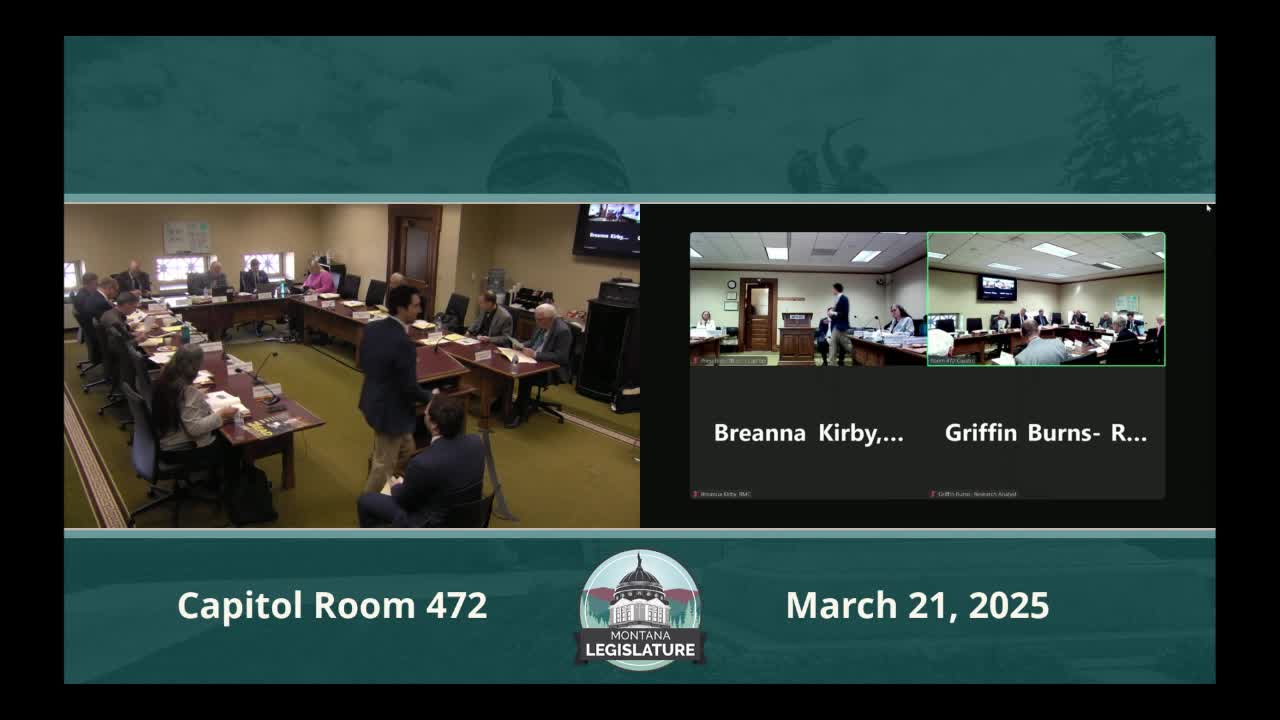Article not found
This article is no longer available. But don't worry—we've gathered other articles that discuss the same topic.

House Energy executive actions: SB265, HJ20, HR3 advance out of committee

Committee amends, then advances Montana blockchain and digital innovation task force bill; 8-6 on executive action

Committee hears bill to limit use of foreign genomic technologies and require U.S. storage of sequencing data

